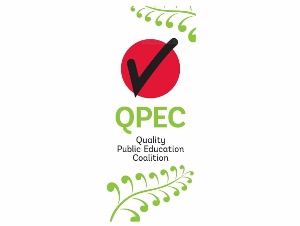
Dr Liz Gordon of the Quality Public Education Coalition is urging caution in making changes to the decile funding system that provides additional funding for schools.
She has been studying the system since 1989 and notes that, while it is far from perfect, “no clear and workable alternative has ever been proposed.”
The system is based on the consistent international finding of a strong association between income and ethnic disadvantage and educational gaps.
“The aim of the additional funding among poorer is to allow schools to overcome barriers to learning,” Dr Gordon says.
She notes that the calculation of the decile ranking is based on community deprivation data gleaned from the census, and then applied to those actually attending the school.
“So, let’s say there is an economically divided community – a rich beach area and a poor inland town, with one school in the community and one 10 km away.
“Perhaps the community school might be decile 4, working on the average of the community. But the school data might reveal that only a tiny number of children from the wealthy area actually attend the school – the beach houses may be holiday homes, or owned by retired people, or the children may be sent to the ‘better’ school (i.e. wealthier families) up the coast.
“So the school may end up at decile 2, a fair-ish reflection of their position (if not their needs).”
Dr Gordon says the system is fair. The problems emerge because there is inadequate funding in the system, and changes to decile position can severely affect services in a school.
She notes that there might be easier ways to calculate funding:
“In the international PISA studies, the most consistent indicator of literacy outcomes at age 15 is the number of books in the home. Those young people coming from families with more than 500 books are around three years ahead of those with less than 10.
Perhaps (tongue in cheek) a book census would be an easier way to target funding for achievement?”
The much-delayed English draft curriculum is now out for consultation, generating discussion from teachers.
Research from AUT demonstrates arts, culture and recreation have positive impacts on all aspects of…
How effective has the school phone ban been in achieving its aims? Researchers from the…
School camps and excursions deliver hands on learning experiences, helping to consolidate classroom learning.
Innovations in AV technologies present new opportunities to engage with students. We look at how…
A new report from the University of Auckland’s Our Voices Project asks young people what…
This website uses cookies.